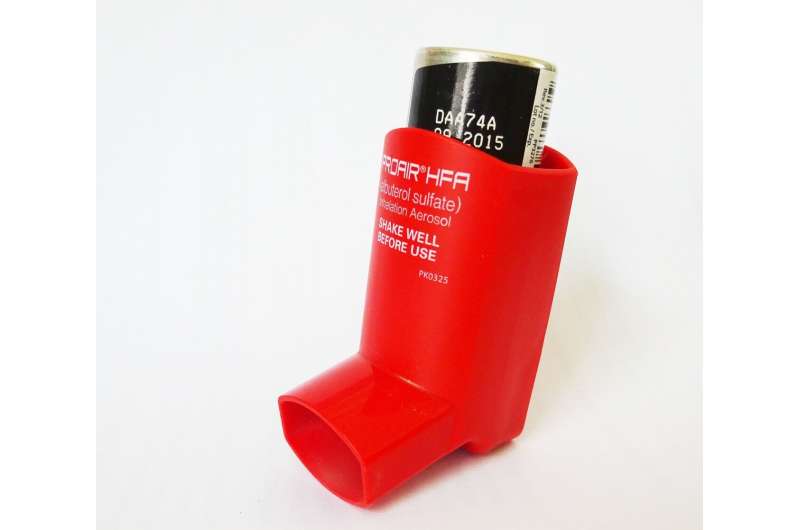This article has been reviewed according to Science X's editorial process and policies. Editors have highlighted the following attributes while ensuring the content's credibility:
fact-checked
trusted source
proofread
Researchers evaluate allergy skin test responses in US asthma population

Patients with asthma commonly suffer from allergic diseases, with an estimated 80% suffering from allergic rhinitis. Asthma and allergic rhinitis share common characteristics, and allergic rhinitis is a risk factor for asthma development and severity. Although allergen skin testing is widely used for evaluating allergic disease, there previously had been a lack of data describing skin reactivity patterns in U.S. asthma patients.
"This report presents one of the most comprehensive evaluations of skin test reactivity among asthmatics in relation to a wide variety of factors," said Rohit Katial, MD, allergist and immunologist at National Jewish Health and senior author of the paper. "By looking at all permutations and levels of asthma severity, these findings underscore that a significant majority of asthma patients also manifest allergic rhinitis."
For the study, investigators conducted a chart review of 500 randomly selected adult and pediatric patients from the National Jewish Health electronic health record. Researchers evaluated the data based on immunoglobulin E (a type of antibody) levels, asthma development in childhood versus as an adult, and asthma severity based on corticosteroid use, sex and race. Allergen reactivity data were collected for 10 allergens, including perennial (cockroach, animal dander, dust mite and others) and seasonal allergens (trees, grasses and weeds).
In reviewing the data, researchers found that 75% of the subjects tested positive for at least one of the 10 allergens, 68% to one of the seven perennial allergens, 60% to one of the three seasonal allergens and 52% to both. Men were more reactive than women for any sensitization and for perennial sensitization, but there was no significant difference in seasonal sensitization.
Overall, skin test reactivity did not differ based on the presence of a diagnosis of rhinitis, demonstrating that rhinitis is not a sole predictor of an underlying allergic condition. Data also confirmed that early-onset asthma subjects tend to be more allergic than those with late-onset asthma. Researchers did note that perennial skin test reactivity was higher in those with early-onset versus late-onset, but that pattern was not seen with seasonal allergies.
"It was noteworthy that a previously held assumption that late-onset asthmatics tend to be non-allergic is incorrect," said Dr. Katial. "Almost two-thirds of the subjects in the late-onset group had skin test reactivity, suggesting that allergic disease should not be discounted even in late-onset asthma patients."
The findings are published in the journal Allergy and Asthma Proceedings.
More information: John M. Katial et al, Allergen skin test responses in broad U.S. asthma population in those with and without rhinitis, Allergy and Asthma Proceedings (2024). DOI: 10.2500/aap.2024.45.240012



















